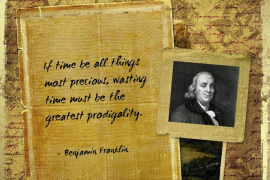We are living in a time when private savings are at their lowest since the Great Depression (1929-1940). The situation is particularly serious in the US, but we are also seeing the same trends in most other Western economies. Going back 20 years, it was normal for over 10% of wages to go directly into savings. As recently as 1994, the level of personal savings was almost 5% for Americans.
By 2006, private saving was already below zero, meaning that Americans were spending more than they earned in a year. Although Europeans are doing better by comparison, the trend is the same here. To take one example, the Swedish people’s debt as a percentage of earned income has risen sharply in recent years. Around 2002, total debts exceeded total earned income for Swedes.
These facts can be seen from many angles, but in general it can be said that today’s society does not have nearly the same respect for debt as previous generations had. Nowadays, debt is seen as a natural part of life. This need not be alarming if the indebted are in control of their situation and are financially literate enough to know what they are doing.
However, it has been shown that there is widespread financial ignorance in our society, with people who have been granted large loans not necessarily even knowing the cost of having these loans. Even basic economic concepts such as interest rates and how they work can be unclear in some cases.
Tips for your personal finances
Without further moralising about the lack of financial literacy among us middle-aged people, we can say that most of us need to know how to take control of our personal financial situation. In the following points, we have summarised what we consider to be the most important basic factors for taking control of your personal finances:
1. Plan your finances
Make a plan to solve your financial problems and stick to it. Whether your personal financial situation is good or bad, you always need a plan for your personal finances, as in other areas of your life. Priority number one should then be to stick to the plan no matter what happens in life.
By having a clear plan of what your financial situation will look like within a certain time, you will also avoid spontaneous purchases that risk ruining your entire finances in the short or long term.
Having a clear plan for your money management also trains your money management discipline and is a skill that will be needed in the future, whether you are rich or poor.
2. Pay yourself first
Pay yourself 10-15% of your salary immediately on payday, even before you pay your bills. At least 3 months’ wages should be kept in a separate savings account for sudden events. This money should never be touched, not even to pay off debt on your credit card.
You should always make it a priority to pay yourself before you pay others because this trains your money management discipline more than anything else. In addition, it has been proven that people are more motivated to save if they see results in their own finances instead of just money leaking out.
Be disciplined about money management. Whatever you set as your money management goals, you cannot afford to be inconsistent in your actions. It is a well-known fact that people have become increasingly weak to temptations in their environment. As noted earlier, it is all too easy nowadays to use credit cards if you can’t wait to save up for major purchases such as a table-top TV.
People generally place too much hope in their future ability to earn more money than they do now, especially when they are standing in front of the cash register. Good self-confidence is generally useful, but it should not be confused with the desire to own a material thing. This behaviour of rewarding oneself in advance is a sign of outright poor personal financial sense.
3. Stop the leaks in your finances
People who have serious financial problems often sit around waiting for the problems to go away on their own, rather than addressing their problems and changing their bad habits themselves. This is often also the case for most of us so-called “normal people”.
If you take a look at the expenses you have had in the last few weeks. How much of this has been expenditure that can be classed as unnecessary? If you add up these small “unnecessary” expenses on a yearly basis, you can come up with substantial sums.
Of course, sometimes you need a bit of a splurge, but if you look really carefully at what you buy, you will find that there is a lot to be gained by changing your buying behaviour with regard to certain items.
4. Don’t care what others think
This is one of the biggest reasons why we think people get into unnecessary debt. In our society, we are expected to follow certain tracks in order to be classed as normal. You have to buy your own home at a certain age, you have to own at least one car and travel abroad at least once a year.
Most of the time this is just about what we think is normal. All of this leads us to buy things that we don’t really need. One of the most important things to become truly financially independent and to be able to take control of your own finances is to get away from these “societal norms” and be able to take a critical look at what you need and don’t in order to live the life that you enjoy for yourself.
In addition, not having a lot of unnecessary debt when you start your climb up the ladder will greatly facilitate your efforts to become financially independent.









